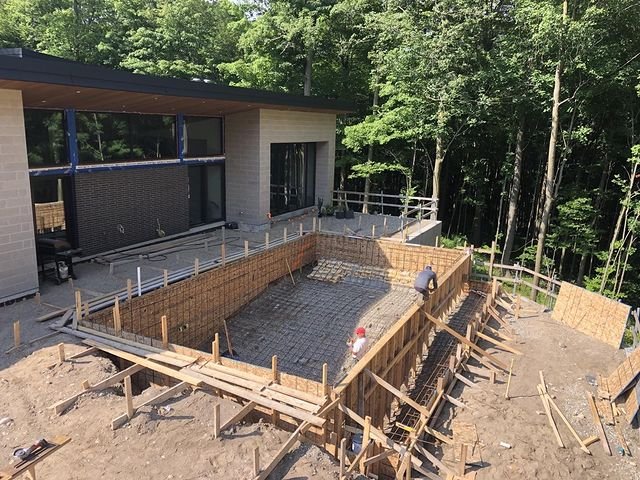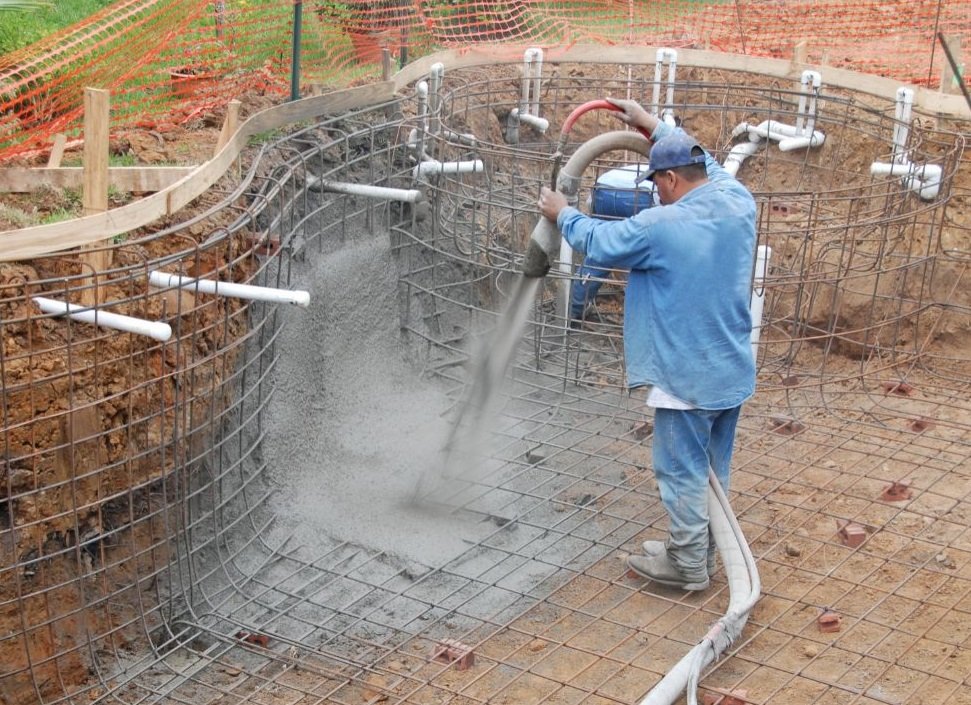A concrete pool is a luxurious addition to any commercial property, offering relaxation and recreation to guests. However, it’s essential to prioritize safety when planning and maintaining a concrete pool. From the design stage to ongoing maintenance, several key commercial aspects must be considered to ensure a safe and secure environment for pool users. Here, we explore the critical features that should be considered to guarantee the safety of your concrete pool.
Construction and Design
When building a concrete pool, careful consideration must be given to the construction and design aspects. Here are a few key points to focus on:
a) Structural Integrity: Engage qualified professionals who specialize in pool construction to ensure the pool is structurally sound and meets safety regulations. Reinforced concrete structures, durable materials, and an appropriate thickness are essential for long-term safety.
b) Non-Slip Surfaces: Incorporate non-slip finishes on the pool deck and interior surfaces to prevent accidents caused by slips and falls. Textured tiles or concrete sealers with anti-slip additives can enhance grip, even when wet.
c) Depth Markings: Clearly visible depth markings should be placed at regular intervals on the pool walls and deck. This helps swimmers gauge the depth accurately, reducing the risk of diving into shallow areas and potential injuries.
d) Entrapment Prevention: Install anti-entrapment devices such as suction outlet covers, safety vacuum release systems, and multiple drains to mitigate the risk of entrapment accidents.
Safety Equipment
To ensure the safety of pool users, it is crucial to have appropriate safety equipment readily available. Consider the following aspects:
a) Fencing and Barriers: Install secure fencing around the pool area, along with self-closing gates and latching mechanisms. The height and design of the barrier should adhere to local building codes and safety standards.
b) Life-Saving Equipment: Keep essential life-saving equipment nearby, including life rings, life hooks, and a first aid kit. Ensure that the equipment is well-maintained, easily accessible, and visible to users and staff.
c) Emergency Communication: Establish effective communication systems, such as emergency phones or intercoms, to enable immediate contact with lifeguards or emergency services in case of an incident.

Water Quality and Chemical Balance
Maintaining proper water quality and chemical balance in your concrete pool is paramount for health and safety. Here’s what you need to consider:
a) Filtration and Circulation: Install a robust filtration system that can effectively remove debris and maintain water clarity. Proper circulation ensures the distribution of chemicals and prevents stagnant water areas.
b) Regular Water Testing: Regularly test the water quality to ensure appropriate pH, chlorine levels, and other chemical balances. Engage professionals or educate staff on water testing procedures to maintain optimal water conditions.
c) Skid-Resistant Pool Deck Drains: Install skid-resistant pool deck drains to prevent water accumulation and promote efficient drainage. This helps in avoiding slippery surfaces and minimizing the risk of accidents.
Ongoing Maintenance and Inspections
To ensure continued safety, ongoing maintenance and inspections are crucial for your concrete pool:
a) Regular Inspections: Conduct regular inspections of the pool’s structural integrity, mechanical systems, safety equipment, and pool deck. Promptly address any maintenance or repair issues identified during these inspections.
b) Staff Training: Train your pool staff on safety protocols, emergency procedures, and the proper use of safety equipment. Regularly refresh their knowledge to ensure preparedness in case of emergencies.
c) Timely Repairs and Upgrades: Address any repairs or necessary upgrades promptly to maintain the safety and functionality of the pool. Proactively replacing worn-out or damaged equipment reduces the risk of accidents.
Safety should always be the primary concern when it comes to concrete pools in commercial settings. By considering the key features discussed above, such as proper construction, safety equipment, water quality, and ongoing maintenance, you can ensure a safe and enjoyable environment for your pool users. Prioritizing safety not only protects your guests but also safeguards your reputation and minimizes liability risks. So, take the necessary steps to implement these features and create a concrete pool that meets the highest safety standards.

